04/04/2021
The tractor’s battery needs to be charged so we can get it out of the shed. The green house needs to be assembled over the garden. The Travertine in the upstairs shower needs to be scrubbed and resealed. Which is why, on this Saturday, my wife and I decided to make fifteen bean chili… and to relax and free our minds while we contemplate the myriad of compound, complex projects before us.
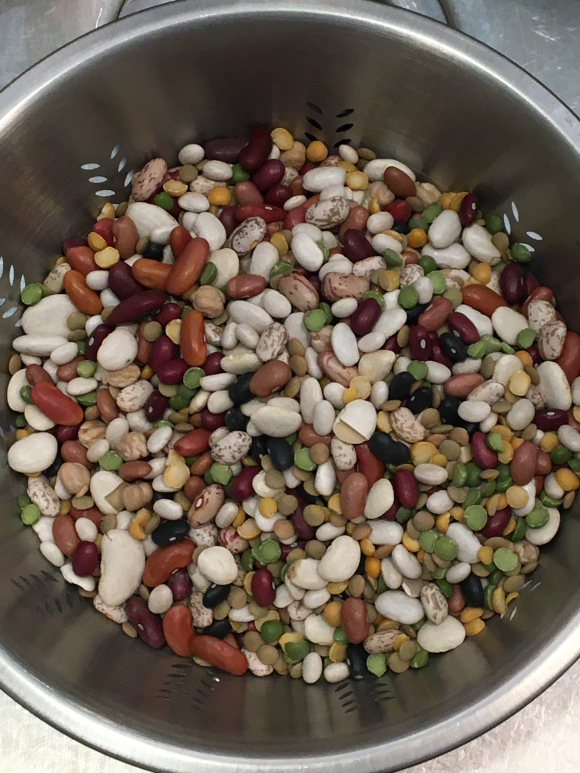
The name sounds heart attack inducing, but times have changed along with ingredients, and it has become low fat, low sodium and carbohydrate neutralizing high fiber. Even calories are low… in reasonable portions. Might be a good idea to post the recipe at some point in time. So while the slow cooker is working on the chili…
The evolutionary Winchester Model 70
 It is always tempting to use the term “venerable” when describing the Winchester Model 70; commanding respect through age, character, and attainments. However, that would suggest the standard Model 70 was placed into production in 1936 and has ever since remained unchanged. Quite the opposite.
It is always tempting to use the term “venerable” when describing the Winchester Model 70; commanding respect through age, character, and attainments. However, that would suggest the standard Model 70 was placed into production in 1936 and has ever since remained unchanged. Quite the opposite.
The Model 70, both wood and metal, have changed in dimension, function and aesthetics ever since the mid 1950s. In support of those progressive changes, materials and manufacturing processes have also been revised. As a result, the Model 70 has stretched into many configurations, each optimized for a category of application.
At the time of this writing, there were seventeen configurations of the Model 70 with differing: synthetic and wood stocks, stainless or alloy steel barreled actions, different barrel lengths and profiles. Within the collection of versions, there are twenty cartridge selections. The Winchester Model 70 product line fits every application from competitive shooting to hunting the smallest and largest quarry.
| Winchester Model 70 Super Grade | |
| Manufacturer | Winchester |
| Item # | 535203228 |
| Type | Bolt Action – Long |
| Caliber | 30-06 Springfield |
| Mag Capacity | 5 |
| Barrel Length | 24″ |
| Rifling | 1:10″ |
| Weight | 8.0 Lbs 4 Oz |
| Overall Length | 44 3/4″ |
| Stock | Satin Walnut Grade IV/V |
| Hardware | High Gloss Blued Steel |
| Length of Pull | 13 3/4″ |
| Drop at comb | 1/2″ |
| Drop at heel | 1/2″ |
| Sights | Clean |
| Scope | Drilled and Tapped |
| Trigger Pull | 3 Lbs. 2 Oz. |
| Safety | Swing 3 position |
| MSRP | $1,489.99 |
Current Model 70s are manufactured at the Browning, Viana, Portugal facility. They all feature spot glass bedded, a floating barrel, better materials, better finish, more precise parts and assemblies, and greater accurates than its many predecessors. Evolution is a wonderful thing.
A Winchester Model 70 Super Grade in 30-06 Springfield was selected as the subject firearm because of model designation’s longevity in production, utility and reliability.
The Model 70 Super Grade fits well within general applications, with “general applications” in my world defined as recreational target shooting and medium to big game hunting within North American geographic regions and environments.
Some detail highlights
The modern Winchester Model 70 is built around an action that is forged from steel billet and then CNC machined to final form and dimensions. The receiver is flat bottomed with an integral recoil lug to properly locate the action to two glass bedded locations on the rifle’s stock.
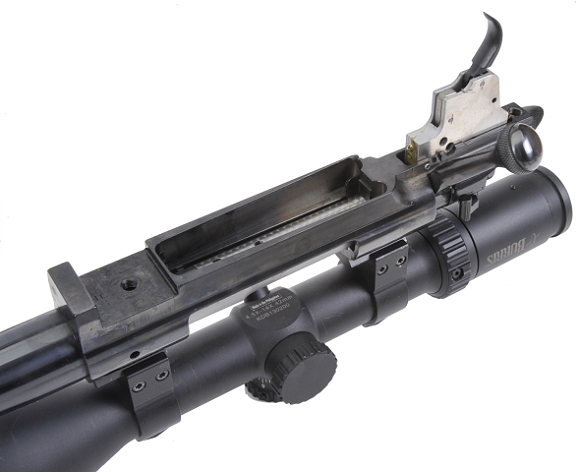
The trigger is the Winchester M.O.A. design, a three lever, high mechanical advantage trigger system that features: zero take up, zero creep, zero overtravel, and an adjustable pull of 3 to 5 pounds.
The Model 70 jeweled bolt is a controlled round feed design; a cartridge case rim slips under the large claw extractor as it is stripped from the magazine and guided into the rifle’s chamber. The same extractor covers a quarter of the cartridge’s rim as it is being withdrawn from the chamber. The ejector is a blade type, so force of ejection and distance of ejection is controlled by the shooter.
The three position safety swings horizontally on the same plane as the bore. Each position is positively located with sprung ball detent engagement; full forward “Fire”, middle position “Safe – Bolt can be cycled”, full back “Safe – Bolt locked in battery position.
The Model 70 Super Grade has both a steel hinged floorplate and one piece trigger guard. Release is outside the guard where it is easy to reach, but not easy to hit under recoil. I like hinged floorplates, maybe because I grew up with them. At the end of the day, should there be a rare occurrence of not getting a shot, the floorplate comes down and ammo is dumped, then the bolt is cycled once to pull the chambered round or check for empty.
Finally! A cartridge older than me…
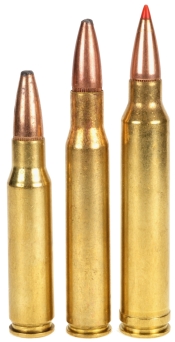 The 30-06 Springfield cartridge has been around since 1906, or 1903 in a slightly different configuration, remaining active in general military assignment through mid Vietnam war era. Not a bad run.The 30-06 Springfield cartridge found its way into four bolt action rifles, two semi auto rifles, four automatic rifles, and twelve machine guns.
The 30-06 Springfield cartridge has been around since 1906, or 1903 in a slightly different configuration, remaining active in general military assignment through mid Vietnam war era. Not a bad run.The 30-06 Springfield cartridge found its way into four bolt action rifles, two semi auto rifles, four automatic rifles, and twelve machine guns.
A cartridge popular with people who served in the military during WW I, WW II, the Korean War, and the early stages of the war in Vietnam, many vets carried the association over into civilian life. In the 1950 and early 1960s, surplus Springfield and Enfield were being sold at discount stores for $10, along with lots of FMJ surplus ammunition. Rifles went hunting as they were, or cut down and lightened or highly customized. The first sporting rifle chambered for the 30-06 Springfield was the lever action Winchester Model 1895 and then it made a leading appearance in bolt action, lever action, semi-auto, and single shot firearms.
Pictured L_R: 308 Winchester, 30-06 Springfield, 300 Winchester Magnum. If actual performance in a civilian setting were the determining factor in cartridge popularity, there would have been no 308 Winchester or any of its short action progeny. Hunters don’t carry enough ammo to benefit from a cartridge weightreduction, they don’t care about minuscule differences in recoil, or scant ounces of receiver steel removed, or the bolt throw difference between a short and long action. And who prefers a 308 Winchester cartridge that is billed as “Almost as good as the 30-06 Springfield”, when the real deal is readily available?
What does that mean in real numbers?
| 308 Winchester 165 Grain Hornady Superformance | |||||||
| Near-Zero – Yards | 25 | Mid Range – Yards |
135 | ||||
| Far-Zero – Yards |
238 | Max Ordinate – Inches |
+3.0 | ||||
| Point Blank – Yards |
254 | ||||||
| Best Zero : Range 0 – 300 yards | ||||||||||||
| Yards | 0 | 50 | 100 | 150 | 200 | 250 | 300 | |||||
| Velocity – fps | 2840 | 2735 | 2633 | 2533 | 2435 | 2340 | 2247 | |||||
| Energy – ft.-lbs. | 2955 | 2741 | 2540 | 2350 | 2173 | 2006 | 1849 | |||||
| Momentum – lbs-sec | 67 | 64 | 62 | 60 | 57 | 55 | 53 | |||||
| Path – in. | -1.50 | 1.17 | 2.68 | 2.94 | 1.84 | -0.73 | -4.88 | |||||
| Drift – in. | 0.00 | 0.00 | 0.00 | 0.00 | 0.00 | 0.00 | 0.00 | |||||
| Time Of Flight – sec. | 0.00 | 0.05 | 0.11 | 0.17 | 0.23 | 0.29 | 0.36 | |||||
| 30-06 Springfield 165 Grain Hornady Superformance | |||||||
| Near-Zero – Yards | 26 | Mid Range – Yards | 140 | ||||
| Far-Zero – Yards | 248 | Max Ordinate – Inches |
+3.0 | ||||
| Point Blank – Yards | 264 | ||||||
| Best Zero : Range 0 – 300 yards | ||||||||||||
| Yards | 0 | 50 | 100 | 150 | 200 | 250 | 300 | |||||
| Velocity – fps | 2960 | 2853 | 2748 | 2645 | 2545 | 2447 | 2351 | |||||
| Energy – ft.-lbs. | 3209 | 2981 | 2766 | 2563 | 2372 | 2193 | 2025 | |||||
| Momentum – lbs-sec | 70 | 67 | 65 | 62 | 60 | 58 | 55 | |||||
| Path – in. | -1.50 | 1.09 | 2.61 | 2.97 | 2.10 | -0.12 | -3.79 | |||||
| Drift – in. | 0.00 | 0.00 | 0.00 | 0.00 | 0.00 | 0.00 | 0.00 | |||||
| Time Of Flight – sec. | 0.00 | 0.05 | 0.11 | 0.16 | 0.22 | 0.28 | 0.34 | |||||
| 300 Win Mag 165 Grain Hornady Superformance | |||||||
| Near-Zero – Yards | 29 | Mid Range – Yards | 154 | ||||
| Far-Zero – Yards | 271 | Max Ordinate – Inches | +3.0 | ||||
| Point Blank – Yards | 289 | ||||||
| Best Zero : Range 0 – 300 yards | ||||||||||||
| Yards | 0 | 50 | 100 | 150 | 200 | 250 | 300 | |||||
| Velocity – fps | 3260 | 3145 | 3034 | 2925 | 2818 | 2714 | 2612 | |||||
| Energy – ft.-lbs. | 3893 | 3623 | 3371 | 3134 | 2909 | 2698 | 2500 | |||||
| Momentum – lbs-sec | 77 | 74 | 72 | 69 | 66 | 64 | 62 | |||||
| Path – in. | -1.50 | 0.90 | 2.41 | 2.98 | 2.54 | 1.00 | -1.72 | |||||
| Drift – in. | 0.00 | 0.00 | 0.00 | 0.00 | 0.00 | 0.00 | 0.00 | |||||
| Time Of Flight – sec. | 0.00 | 0.05 | 0.10 | 0.15 | 0.20 | 0.25 | 0.31 | |||||
The 30-06 Springfield cartridge has a significant edge over the 308 Winchester, but without the magnum recoil and muzzle blast personality of the 300 Winchester Magnum. The tables were limited to 300 yards as a range that reflects the maximum for 95% of the hunters in the U.S.. Can the 30-06 Springfield reach farther? Sure, the 30-06 Springfield has won scores of 1,000 yard competitions, with the aid of rifles and shooters, including multiple wins at Wimbledon.
Live fire with factory ammo
| Ammunition | Bullet Grains |
Rated FPS 24″ BBL |
Recorded FPS 24″ BBL |
100 Yard 3 Shot Group” |
| Remington Core-Lokt | 125 | 3140 | 3182 | 1.1 |
| Remington Core-Lokt | 150 | 2910 | 3020 | 0.7 |
| Remington Core-Lokt | 180 | 2700 | 2817 | 1.0 |
Handloads
I shoot very little factory ammo; the prices keep climbing, factories aren’t producing for retailers and the government can’t find enough ways of interfering with supply. My preference is to have the type of components that work for me and to keep costs down so I can shoot without encroaching on household budgets for frivolous things like food, clothing and shelter.
In this case, all of the bullets listed have proven effective for me in concert with the 30-06 Springfield cartridge. The Hornady SST 125 grain works well on smaller deer and large varmints… coyote. The Sierra Game King 165 grain is good for deer, black bear and hogs. The Nosler Partition 180 grain is good for elk and Maine moose. The 200 grain Speer Hot-Cor is good for anything larger.
A variety of powders were selected, mostly for best accuracy and to show the cartridges flexibility. Superformance powder does work well with the 30-06 Springfield. CCI large rifle magnum primers were used in all loads. No charges were compressed, no problems with feeding from the Model 70’s magazine or clearing rifling leade. Brass was all once fired Winchester brand, cleaned and trimmed.
Hornady full length sizer die and seater were selected. A Lee factory crimp die applied light collet crimps, cannelure or not.
Warning: Bullet selections are specific, and loads are not valid with substitutions of different bullets of the same weight. Variations in bullet length will alter net case capacity, pressure and velocity. Primer selection is specific and primer types are not interchangeable. These are maximum loads in my firearms and may be excessive in others. All loads should be reduced by 5% as a starting point for development where cartridges have greater than 40 grains in capacity and 10% for cartridges with less than 40 grain capacity following safe handloading practices as represented in established mainstream reloading manuals. Presentation of these loads does not constitute a solicitation for their use, nor a recommendation.
![]()
| Cartridge – 30-06 Springfield 60KPSI MAP |
|
| Firearm | Winchester Model 70 |
| Barrel Length | 24.00″ |
| Min – Max Case Length | 2.494″ +0.000″/-0.020″ |
| Min – Max COL | 2.940″ – 3.340″ |
| Primer | CCI 250 |
| Bullet Diameter | 0.3090″ +0.000″/-0.0030″ |
| Reloading Dies | Hornady+Lee |
| Bullet Type | Bullet Weight Grains |
Net H2O Grains Capacity |
COL” | Powder Type | Powder Charge Grains |
Muzzle Velocity fps |
Muzzle Energy ft/lbs |
3 Shot 100 YD Group” |
| Hornady SST | 125 | 62.4 | 3.220 | IMR 4064 | 56.5 | 3424 | 3255 | 0.9 |
| Hornady SST | 125 | 62.4 | 3.220 | IMR 4895 | 57.5 | 3351 | 3118 | 1.0 |
| Sierra GameKing | 165 | 62.3 | 3.330 | Alliant Re 16 | 58.5 | 3092 | 3502 | 0.8 |
| Sierra GameKing | 165 | 62.3 | 3.330 | Superformance | 61.0 | 3000 | 3298 | 0.6 |
| Nosler Partition Spitzer | 180 | 59.8 | 3.310 | Alliant Re 16 | 56.0 | 2887 | 3332 | 1.0 |
| Nosler Partition | 180 | 59.8 | 3.310 | Superformance | 59.5 | 2845 | 3236 | 1.1 |
| Speer Hot-Cor SP | 200 | 59.4 | 3.295 | Alliant 4000MR | 55.0 | 2716 | 3277 | 0.7 |
| Speer Hot-Cor SP | 200 | 59.4 | 3.295 | Alliant Re 17 | 51.0 | 2657 | 3136 | 0.8 |
No problems were encountered. All round feds and fired, no unusual report, but definitely not starting points in charges. Recoil was moderate, relatively speaking, somewhere between the 308 Win and 300 Win Mag or WSM. Honestly, I can’t tell the difference in recoil between the 308 Win and 30-06 Springfield. I thought accuracy was terrific, especially in the real world rather than in the virtual world of social media where every person and every rifle shoots 1/4 MOA groups.
Yes, the Nosler Partition did bump over the 1″ mark. Thank you for noticing. I played with charges in 1/10 grain increments, backing off a full 2 grains without better results in both cases. Perhaps a powder change would help, but I have never been able to get Partitions to shoot super accurate. Their saving grace is that they are a stopper on game.
Overall impressions of the Winchester Model 70
I enjoyed the project. The weather was very cold when it began, but the wood stock had a warmth in handling I would not associate with synthetic stocks. The stock geometry is good. Very comfortable shooting, even from the someone-help-me-get-up positions.
The rifle is very solid, cycling the bolt is very smooth and ejection distance whatever I wanted it to be, based on force applied when opening the bolt. Important to handloaders and range shooting. Price isn’t bad, looks are good. A traditional bolt action rifle I am very glad to see in production.
Epicurean Epilogue – Evolving 15 Bean Chili
Ingredients:
1lb 4oz bag HamBeens 15 Bean Soup mix
1.5 lbs 85/15 ground sirloin
1 large white onion
1 pound Shiitake mushrooms
8 slices Smithfield thick cut Cherrywood smoked bacon
6 cups low sodium beef broth
2 teaspoons chili powder
2 cups of chunky salsa (heat rating as preferred)
1 15 ounce container plain tomato sauce
4.5 ounces of canned green chili
Grated Monterey or cheddar cheese
2 teaspoons Xanthan Gum
Instructions… such as they are….
Rinse beans, no soaking required, and dump into a 6 quart slow cooker.
Brown bacon in a skillet, remove and cut into 1″ squares and dump into cooker. Don’t clean skillet.
Dice and saute onions in skillet, dump into cooker. Don’t clean skillet.
Brown ground sirloin in skillet. Drain, dump in cooker. Don’t clean skillet.
Brown mushrooms in skillet. Drain and set aside. Now you can clean the skillet.
Pour beef broth into cooker, add as required to fully cover other ingredients.
Set cooker to high and timer to 7 hours, or cook until beans are tender. Add broth if necessary.
At 6 hours, if beans are tender, add chili powder, salsa, tomato sauce, green chilies, and mushrooms.
Stir vigorously. Cook for one more hour.
If chili needs thickening, mix 2 teaspoons of Xanthan Gum to one cup of chili liquid, whisk until thick, stir into chili and let thicken.
Ladle into a bowl, top with a sprinkle of cheese and the chili is good to go.

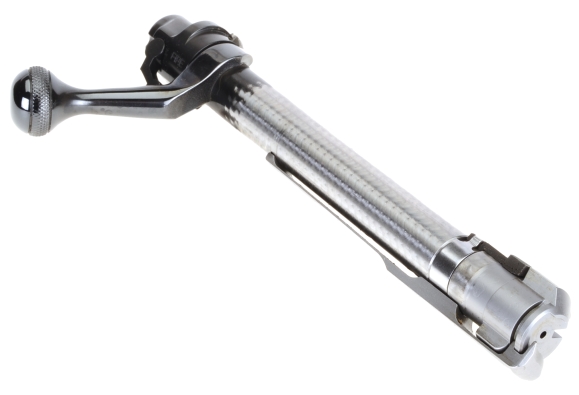
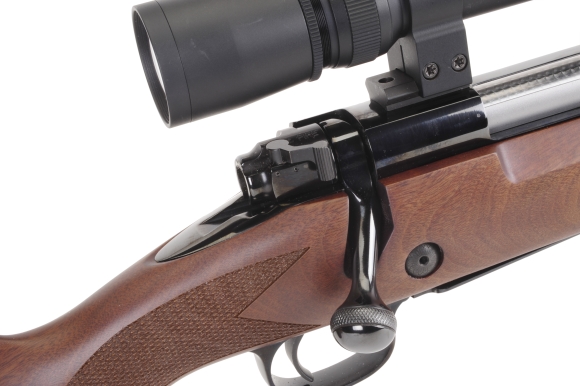
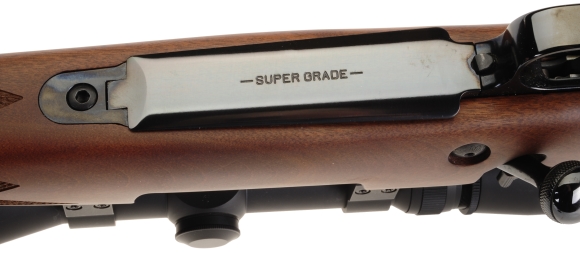
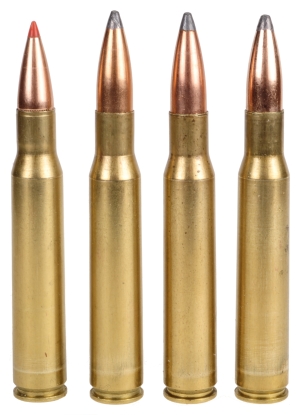
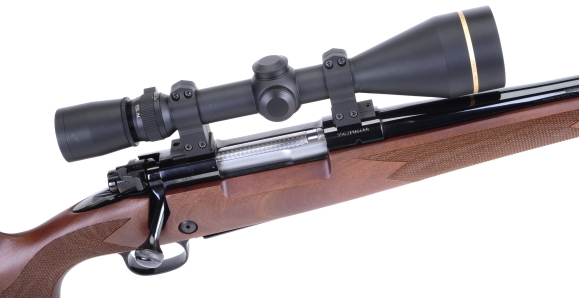
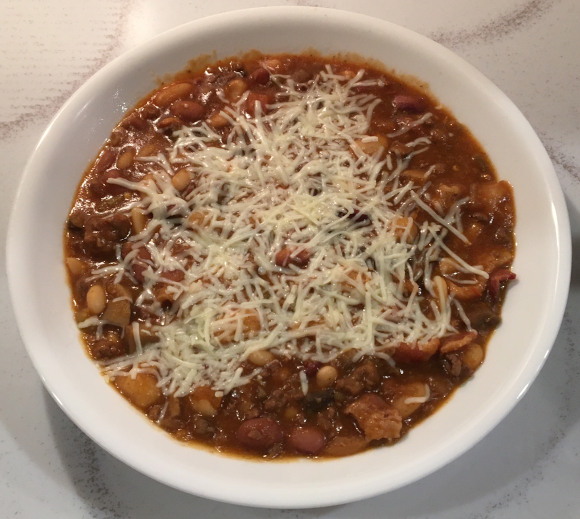
Email Notification